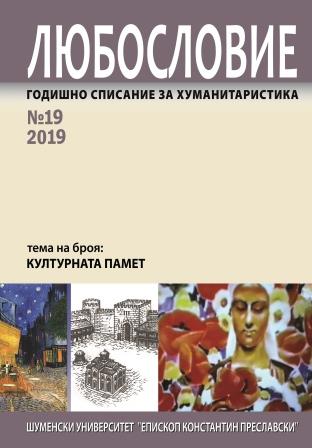„Българските“ романи на Илия Троянов, Димитър Динев и Сибиле Левичаров – посредници на културната памет в дебата за близкото минало на България
The “Bulgarian” novels by Iliya Troyanov, Dimiter Dinev and Sibile Levicharov – mediators of cultural memory in the debate on the recent past of Bulgaria
Author(s): Snezhana BoychevaSubject(s): Language and Literature Studies, Studies of Literature, Bulgarian Literature
Published by: Шуменски университет »Епископ Константин Преславски«
Keywords: novels; mediators; cultural memory; recent past of Bulgaria; collective memory
Summary/Abstract: The book market in Bulgaria has been deluged with memoirs, memories, autobiographies and stories about the communist regime ever since 1989. A great number of the authors belong to the so called “nomenclature”, whose stories of the recent past fill the collective memory of a great part of the society, and this in practice makes this memory blocked by the usurped versions of the past because the narrative strategy in this case involves a focused selection or avoidance of the facts through euphemisms. On the other hand, the memories of the victims of communist regime are available – much less in number and in certain cases demonizing the system. Among the memories of the “executioners” and the memories of the victims abides the silence of “the little people” with their personal memories and individual stories of socialism, based on biographical data about the individual and the private path of socialization. Ilija Trojanow’s The world is big and salvation lurks around the corner, Dimiter Dineff’s Angel languages and Sybille Levitscharoff’s Apostoloff are novels, attempting to articulate this type of memories. Of special interest, in literary and oral personal stories, are the intersections between the "great history" of ideologies and the private versions of the experience in the individual stories. They provide information about the degree to which the public space has penetrated into the personal sphere, the everyday life of ordinary people, families, schools, the relationship between parents and children. They also show in what ways the narrative about the communist past nowadays influences the individual memory and the shared collective memory in the direction of idealizing, demonizing or marginalizing the past.
Journal: Любословие
- Issue Year: 2019
- Issue No: 19
- Page Range: 166-186
- Page Count: 21
- Language: Bulgarian

